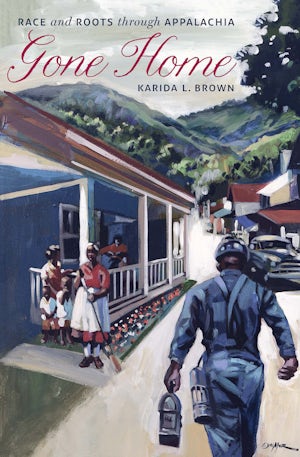Gone Home
Race and Roots through Appalachia
By Karida L. Brown
264 pp., 6.125 x 9.25, 16 halftones, 2 tables, bibl., index
-
Hardcover ISBN: 978-1-4696-4703-6
Published: September 2018 -
Paperback ISBN: 978-1-4696-6606-8
Published: August 2021 -
E-book EPUB ISBN: 978-1-4696-4704-3
Published: August 2018 -
E-book PDF ISBN: 979-8-8908-5546-6
Published: August 2018
Buy this Book
- Hardcover $29.95
- Paperback $24.95
- E-Book $19.99
For Professors:
Free E-Exam Copies
Awards & distinctions
2019 Mary Douglas Prize for Best Book in the Sociology of Culture, Section on Culture, American Sociological Association
2019 Distinguished Contribution to Scholarship Book Award, Race, Gender, and Class Section, American Sociological Association
Finalist, 2019 PROSE Award in Anthropology, Criminology, and Sociology, Association of American Publishers
Runner-Up, 2018 Weatherford Award for Nonfiction, Berea College and Appalachian Studies Association
Honorable Mention, Otis Dudley Duncan Award, Sociology of Population Section, American Sociological Association
Drawn from over 150 original oral history interviews with former and current residents of Harlan County, Kentucky, Brown shows that as the nation experienced enormous transformation from the pre- to the post-civil rights era, so too did black Americans. In reconstructing the life histories of black coal miners, Brown shows the mutable and shifting nature of collective identity, the struggles of labor and representation, and that Appalachia is far more diverse than you think.
About the Author
Karida L. Brown is assistant professor of sociology and African American studies at the University of California, Los Angeles.
For more information about Karida L. Brown, visit
the
Author
Page.


